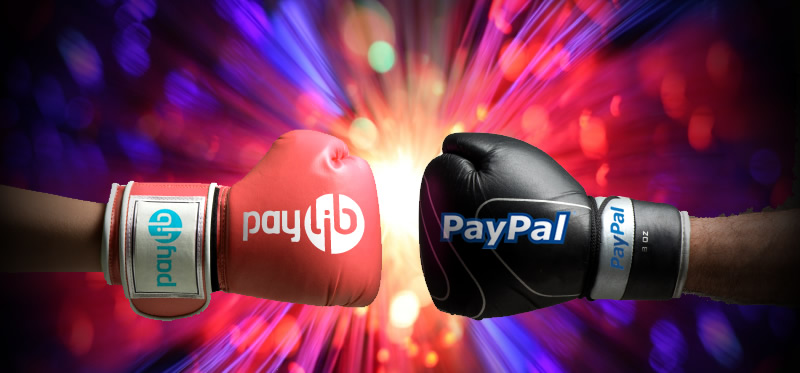 In order to compete with electronic payments provider PayPal (3 million users in France) and to take part of the new European launch of payment platforms by the end of 2013 — which is going to be sponsored by powerful brands such as Visa, Google and MasterCard — a new payment solution was unveiled on September 17th in France. PayLib, as the online payment platform is named, revolves around the concept of being able to “pay freely” on the web and is backed by three major sponsors – all of which are French banks: Société Générale, BNP Paribas and La Banque Postale.
In order to compete with electronic payments provider PayPal (3 million users in France) and to take part of the new European launch of payment platforms by the end of 2013 — which is going to be sponsored by powerful brands such as Visa, Google and MasterCard — a new payment solution was unveiled on September 17th in France. PayLib, as the online payment platform is named, revolves around the concept of being able to “pay freely” on the web and is backed by three major sponsors – all of which are French banks: Société Générale, BNP Paribas and La Banque Postale.
Security and simplicity
This platform will be available on smartphones and tablets as well as desktops. PayLib highlights two key concepts for the French audience: security and simplicity. When using PayLib, French internet users will be able to get identified by using their bank login details. It means they will not need to link their bank accounts to another provider such as PayPal, which is not only going to be safer but also means they will not have to remember a plethora of logins in order to buy something online.
23 million French bank accounts
Because the Société Générale, BNP Paribas and La Banque Postale combine to account for 23 million French bank accounts, a lot of e-commerce websites have been eager to adopt the new platform, including voyages-sncf.com and ventesprivees.com. In fact, 8 out of the top 15 e-commerce sites in France are already on-board.
Another way to look at it is the protection of data that have been put at risk when using external payment platforms such as PayPal. According to the Observatory for Payment Card Security of the Banque de France, online payment fraud has lowered down to 0.290% in 2012 from 0.341% previously. While indeed a positive development, “online” continues to represent 61% of total payment frauds in France.
A good incentive for e-commerce websites
While PayPal takes 3% commission of all transactions, PayLib would charge less, in turn improving the margins of e-commerce websites, or alternatively, allowing these sites to lower their prices.
This financial incentive could prove a significant differentiator; one that should encourage other French e-commerce sites, then banks, to be part of the PayLib adventure – even if at the moment the latter ones are relatively reluctant to the idea.
The Credit Agricole launched its own platform called Kwixo two years ago, aiming for “5 to 6 million users within 4 or 5 years”. The objective, though, has proven too bullish to say the least, with only 450,000 users and 1200 online shops registered, none of which are among the top 15 e-commerce sites. The same fate has been noted for Buyster, the payment facility launched by Bouygues, Telecom Orange and SFR (mobile phone providers).
The PayLib platform should reduce the amount of online frauds that make French banks waste a lot of money, whilst also making the French electronic payments landscape more competitive. So far French banks dominate 93% of the local payment market, but with the expansion of online payment popularity and the future launch of new payment facilities from global giants, it seems necessary to start thinking about moving faster and proposing what French internet users really need. With the development of this new local online payment platform, website localisation is taking yet another dimension in France.








